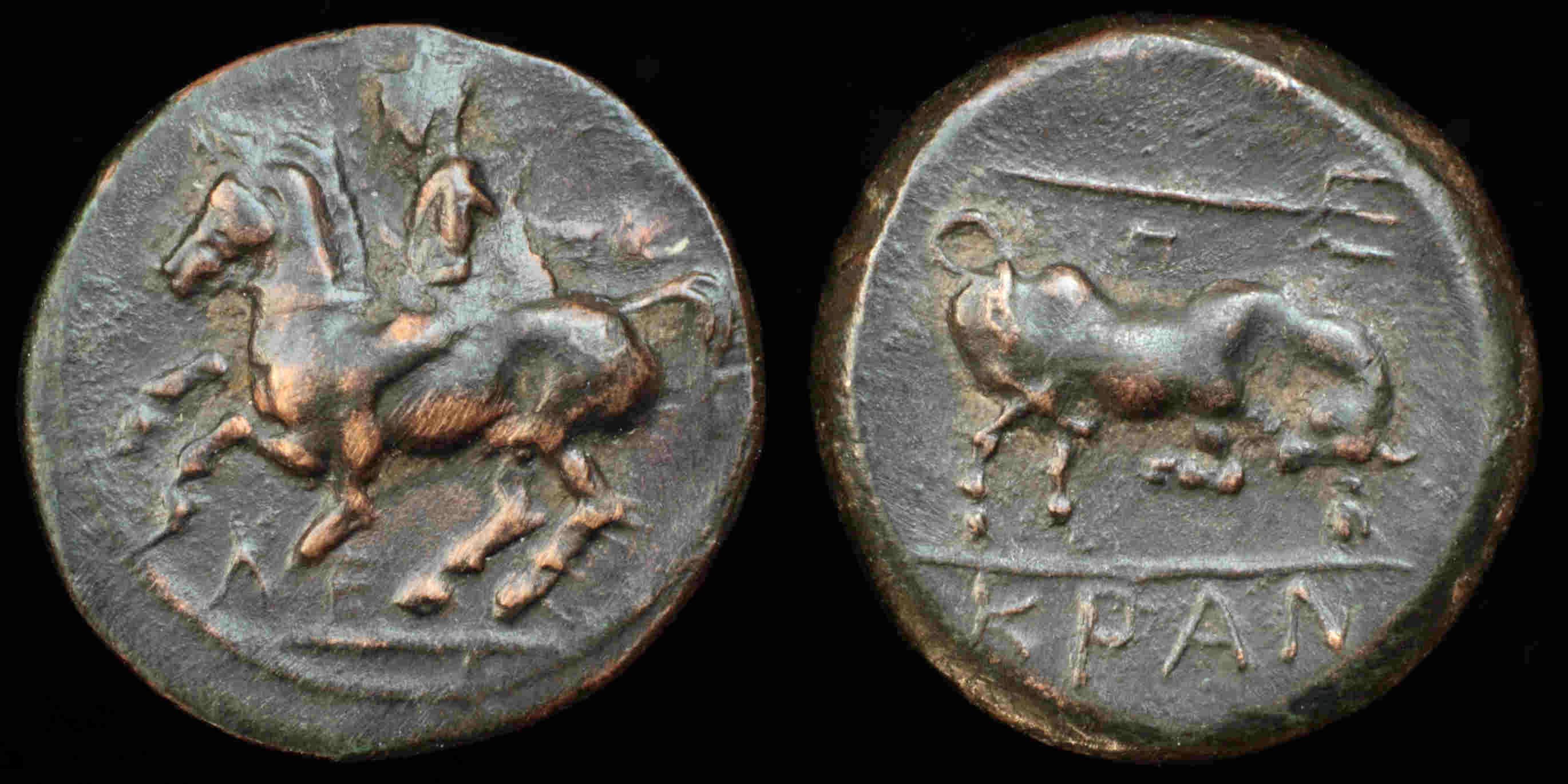Crannon was one of the leading cities of Thessalia in the 5th and 4th centuries BC.
It is mentioned by Thucydides in his Histories among the Thessalian cities that sent troops to help Athens against Sparta in 431, at the beginning of the Peloponnesian war.
Crannon was said to owe its name to the mythological hero Cranon, a son of Pelasgus, the eponym of the Pelasgians. The name of the city was formerly Ephyra, but it was changed to Crannon by its citizens after their king, Cranon, had been killed by Oenomaus in Pisa, during his failed attempt to win the hand of his daughter Hippodamia.
It is mentioned by Thucydides in his Histories among the Thessalian cities that sent troops to help Athens against Sparta in 431, at the beginning of the Peloponnesian war.
Crannon was said to owe its name to the mythological hero Cranon, a son of Pelasgus, the eponym of the Pelasgians. The name of the city was formerly Ephyra, but it was changed to Crannon by its citizens after their king, Cranon, had been killed by Oenomaus in Pisa, during his failed attempt to win the hand of his daughter Hippodamia.
Modern location: Ruins

